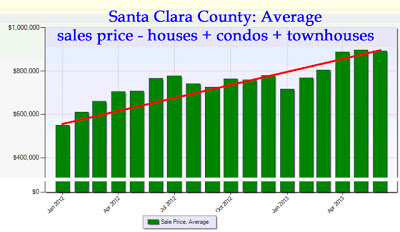The Growth of Single Households: Singles Make Up a Quarter of All Buyers
Whether people marry later, divorce more frequently, and/or live longer, more people are living alone.
In fact, single buyers comprised a quarter of all home purchases last year, according to the NATIONAL
ASSOCIATION OF REALTORS® (from 17% in 1970). The living solo trend is evident in the country’s 33 million one-person households. Young adults ages 18 to 34 are the fastest-growing group of people living alone.
- Solo households are also mostly women: 18 million women live alone versus 14 million men. Twice as many single women bought homes as did single men in 2012.
- A single buyer can face challenges in this post-recession market, especially when it comes to qualifying for a mortgage because a single buyer cannot rely on the advantages of dual incomes or shared responsibly that a two-person household does. That being said, single buyers are not dragged down by a partner's credit score, loans, or credit card debt.
- Single households are prominent in other countries as well, with Sweden having the largest proportion of solos (47 percent). The United Kingdom has a rate of 34 percent, Japan’s is 30 percent, and Norway’s is 40 percent.
- Around 11 million Americans living alone are elderly, and the majority of solo households are in cities and metro areas.
- Purchasing a home can be a means
of self-expression for singles, and they can express their lifestyles and
values while focusing on the exact communities, home styles, and features
that cater to their individuality with much less compromise.
Thanks for reading,
Francis
Silicon Valley real estate specialist
Detailed, local trends etc...
Current mortgage rates
A place worth noting: Our Brother's Home in MountainView












